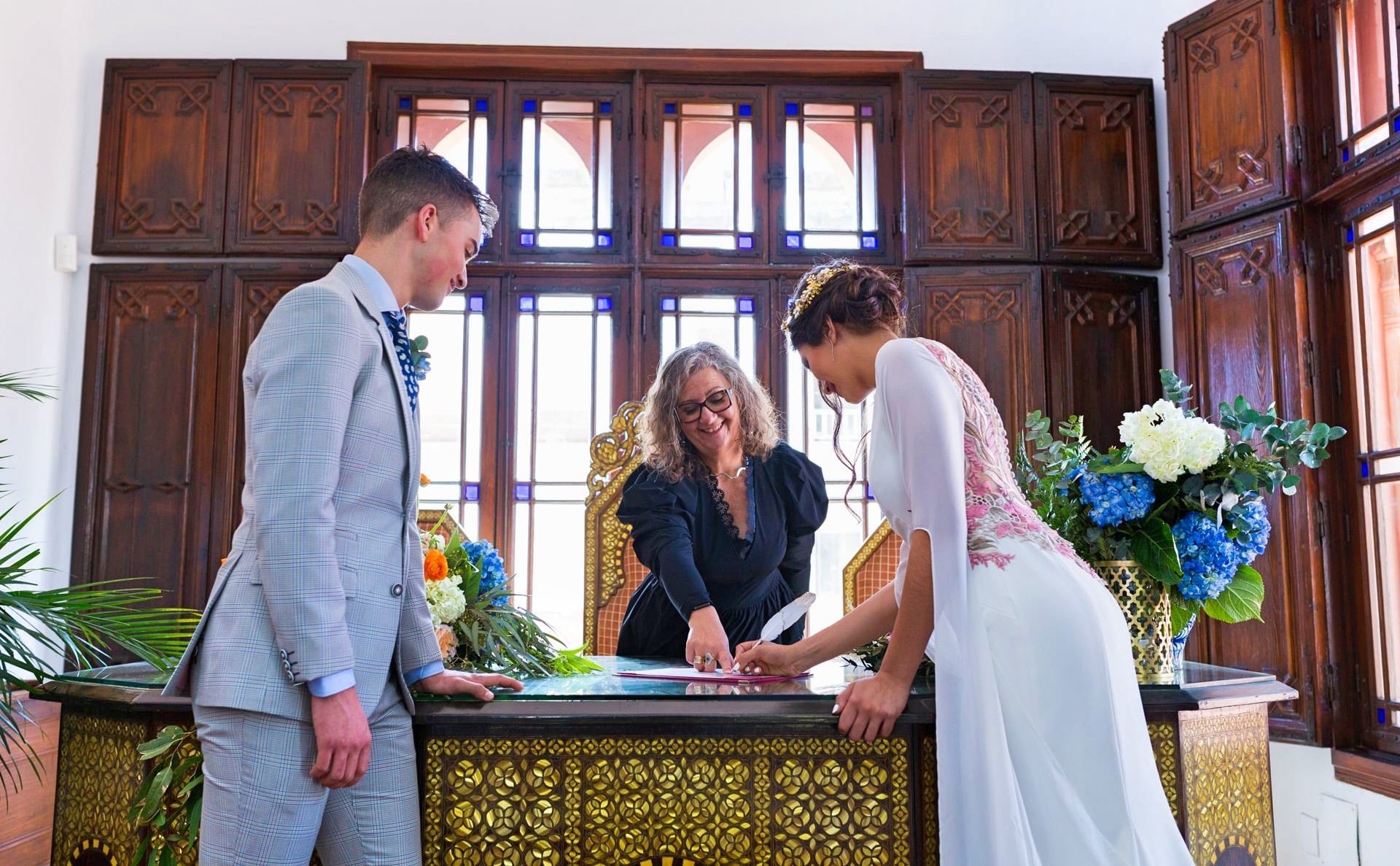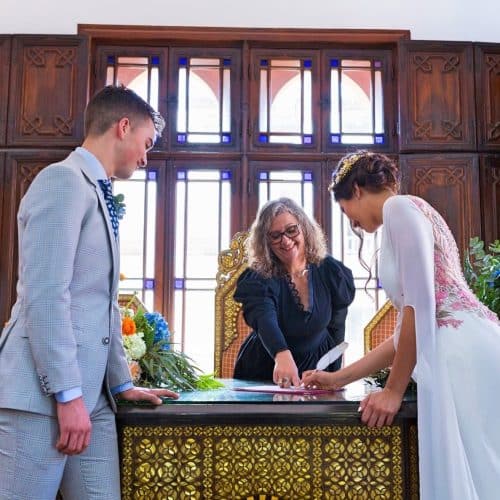
Below, we will discuss the key differences between a celebrant and a registrar.
Differences between a Celebrant and a Registrar
Specialism and Employment Status

While a celebrant may also do funerals and naming ceremonies, they have no official paperwork to file for any of their ceremonies, and therefore their main focus is on meeting the couple to get to know them and learn what they want, writing a unique ceremony for them, and delivering the ceremony with energy and aplomb. No two celebrant-led ceremonies are the same, and this is the main appeal for many couples choosing a celebrant over a registrar. Celebrants are also self-employed and will very rarely conduct more than one wedding a day, giving them plenty of time to craft a unique ceremony tailored to you.
Legality
One advantage that registrars have over celebrants is that the marriages they conduct are legal. All registry offices across the UK can conduct legal weddings, and there are also some 7,000 approved venues that are also licensed to have legal, registrar-led weddings. Celebrants, however, are unable to conduct legally-binding marriages, no matter where it takes place. While this may be changing in the future, for now, if couples want a celebrant-led wedding, they must first go to get legally married in a registry office in front of a couple of witnesses before having the larger, non-legal ceremony with all their friends and family in the venue and manner of their choice.
Flexibility
Registry offices will, more often than not, have multiple weddings taking place at the same venue every day. In addition, it’s very possible that the individual registrar conducting your wedding may have one or two other weddings on that day as well. This leaves you with very little flexibility when it comes to timings in your ceremony. You will have a fixed timeslot, and you will be unable to go over that timeslot. Furthermore, you are also restricted in terms of where you can have your wedding – many hotels and other venues are not licensed for legal marriages – and also in terms of content: while you are free to choose readings and songs during a registrar-led wedding, any sort of religious content, such as Bible readings or songs that mention a deity, are prohibited.
Flexibility is one of the key reasons people choose a celebrant over a registrar. Because the ceremony is not legally binding, essentially you can do what you want, and a celebrant is there to essentially tie all your brilliant ideas together into a coherent ceremony. Depending on your venue, there may be no time restraints on the ceremony at all, while a celebrant-led wedding can take place anywhere you like – a mountain, a forest, your place of work, or your back garden.


